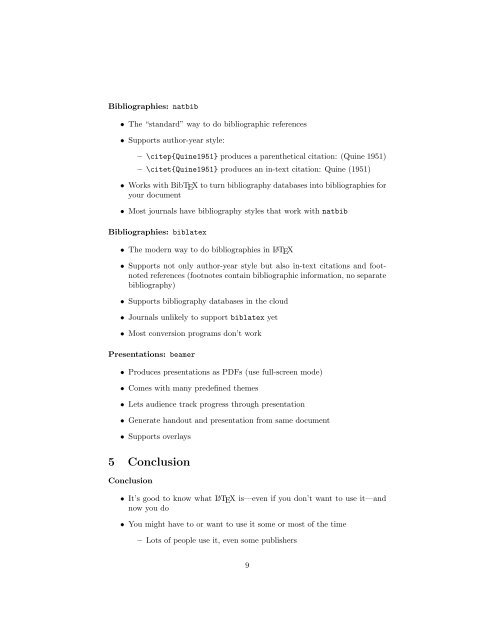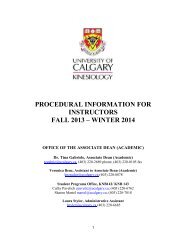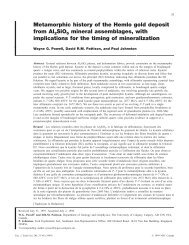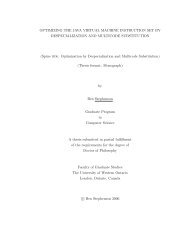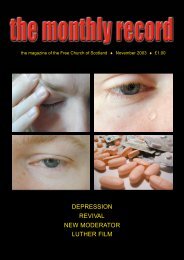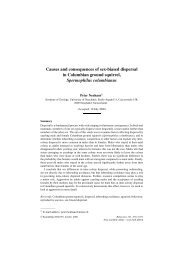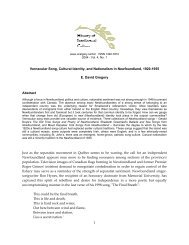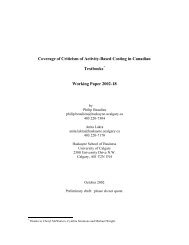LATEX for Philosophers - University of Calgary
LATEX for Philosophers - University of Calgary
LATEX for Philosophers - University of Calgary
You also want an ePaper? Increase the reach of your titles
YUMPU automatically turns print PDFs into web optimized ePapers that Google loves.
Bibliographies: natbib<br />
• The “standard” way to do bibliographic references<br />
• Supports author-year style:<br />
– \citep{Quine1951} produces a parenthetical citation: (Quine 1951)<br />
– \citet{Quine1951} produces an in-text citation: Quine (1951)<br />
• Works with BibTEX to turn bibliography databases into bibliographies <strong>for</strong><br />
your document<br />
• Most journals have bibliography styles that work with natbib<br />
Bibliographies: biblatex<br />
• The modern way to do bibliographies in L A TEX<br />
• Supports not only author-year style but also in-text citations and footnoted<br />
references (footnotes contain bibliographic in<strong>for</strong>mation, no separate<br />
bibliography)<br />
• Supports bibliography databases in the cloud<br />
• Journals unlikely to support biblatex yet<br />
• Most conversion programs don’t work<br />
Presentations: beamer<br />
• Produces presentations as PDFs (use full-screen mode)<br />
• Comes with many predefined themes<br />
• Lets audience track progress through presentation<br />
• Generate handout and presentation from same document<br />
• Supports overlays<br />
5 Conclusion<br />
Conclusion<br />
• It’s good to know what L A TEX is—even if you don’t want to use it—and<br />
now you do<br />
• You might have to or want to use it some or most <strong>of</strong> the time<br />
– Lots <strong>of</strong> people use it, even some publishers<br />
9


